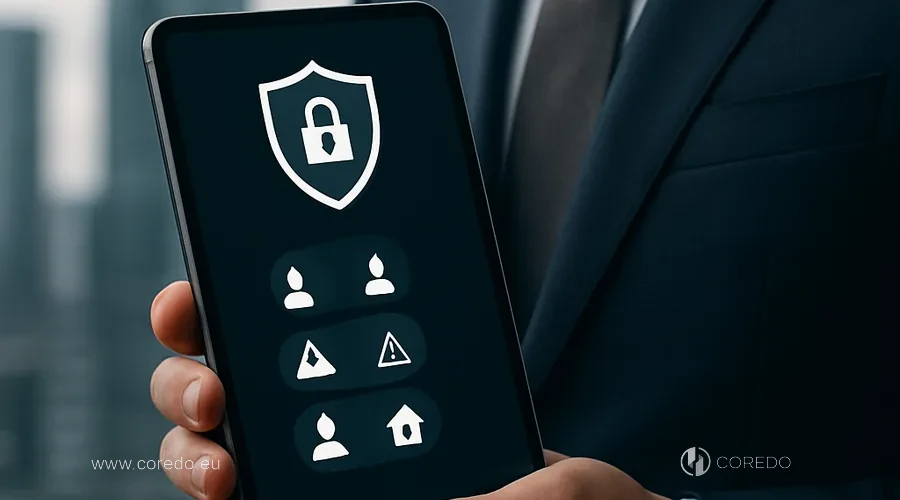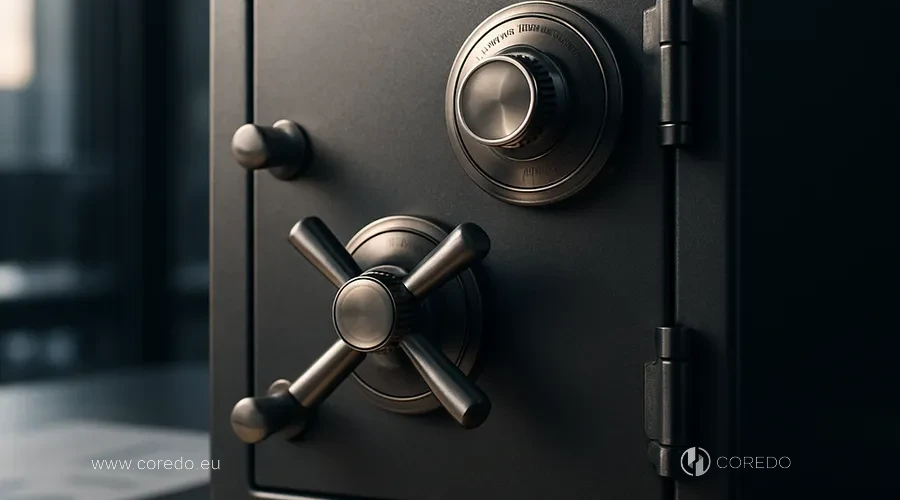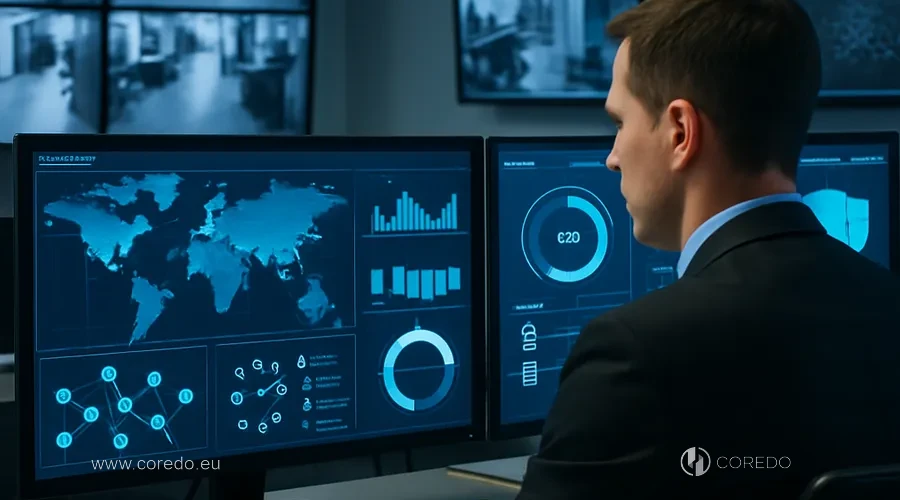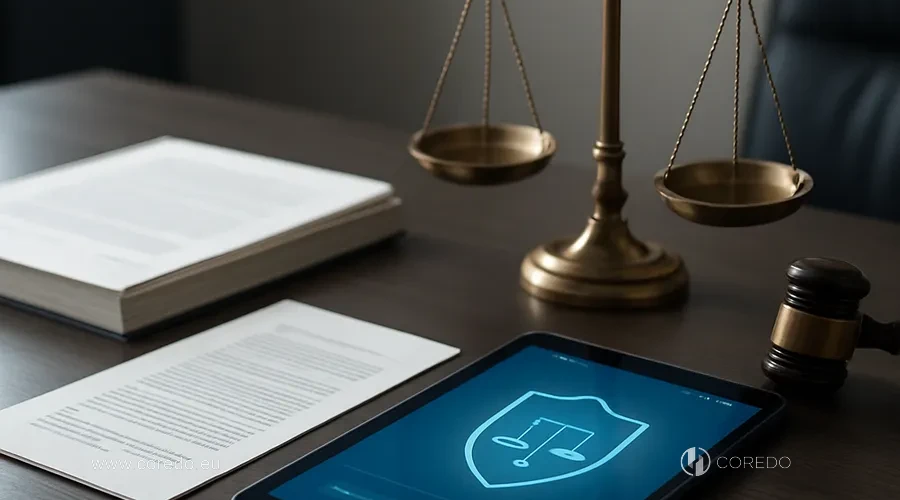Thousands of cases of threats to founders, attempts at corporate espionage and attacks on business assets are recorded annually in Europe, Asia and Africa — and most of them occur not in war zones but in developed financial centres.
But why, despite technological advances and tightening regulatory requirements, do founders’ personal security and investors’ corporate security still remain vulnerable?
Is it worth relying solely on standard physical security measures if modern threats are becoming increasingly hybrid — combining cyber risks, social engineering and local specificities? How do you assess the ROI of investments in security if a real threat may emerge years later? And most importantly, which strategies actually work when it comes to protecting the business and the personal safety of founders in the context of international expansion?
Personal security of company executives

The personal security of company executives is becoming an increasingly complex task: modern threats go far beyond physical protection and require a comprehensive digital and organizational approach. Executives face new risks every day, from targeted cyberattacks to leaks of personal information, which makes timely assessment of personal security risks a key element of corporate protection.
Assessing personal security risks in business
In COREDO’s international practice we find that assessing personal security risks for founders and top managers requires a systemic approach. Geopolitical changes, the rise of cyber threats and increasing competition lead to new scenarios: from targeted attacks on executives in countries with high levels of corruption to attempts to apply pressure through family members or insiders.
To analyze threats, the COREDO team uses comprehensive methodologies: from classic risk assessment (ISO 31000) to dynamic monitoring of local and industry risks using AI analytics. For example, when a client enters the Southeast Asian market we consider not only the crime situation but also cultural specifics that may affect the perception of an executive’s status and vulnerability.
Assessment methods include:
- Structured threat analysis (threat mapping) taking into account the specifics of the region and industry.
- Monitoring mentions in the media and social networks to identify potential pressure campaigns.
- Assessment of corporate risks related to insider threats and corporate espionage.
Practical personal security measures
COREDO’s implemented projects show that personal security and VIP escort are not only physical protection, but also the construction of a multi-layered protection system. In Europe and Asia, biometric access control technologies are increasingly used, allowing the risk of unauthorized entry to be minimized even if classical identifiers are compromised.
Key measures include:
- Use of professional personal escorts who have been trained in international security protocols (for example, Executive Protection standards).
- Implementation of biometric access control systems (face recognition, fingerprints) integrated with corporate security systems.
- Development and regular updating of security protocols for executives, including incident response scenarios, training on preventing social engineering and accompaniment during business trips.
Physical security and protection of companies

Physical security and protection of companies: this is the foundation for protecting people, property and the uninterrupted operation of the business. A well-thought-out system of physical measures and rules makes it possible to prevent threats related to unauthorized access, theft or equipment damage, and provides peace of mind for employees and clients.
Physical security of companies – measures and rules
Physical security of business: it is not just perimeter guarding, but a system that combines video surveillance, alarms, monitored security and access control with digital solutions. In COREDO practice, effective projects were built on the principle of integration: physical security and access control are complemented by video surveillance analytics, and alarm systems by the capability of emergency call and remote monitoring.
Key elements of comprehensive business security:
- Implementation of intelligent video surveillance systems with face recognition and behavior analysis functions (AI-powered CCTV).
- Multi-level access control, including biometrics and smart cards, with the ability to integrate with ERP and HR systems.
- Alarm systems and monitored security, providing instant responresponse to incidents.
- Integration of physical and digital protection measures – for example, automatic blocking of access when anomalies are detected in the behavior of employees or external visitors.
Scaling security during international expansion
Scaling security systems for international companies requires taking into account local risks and cultural specifics. For example, in Asia and Africa issues of physical security are closely linked to local traditions and perceptions of the owner’s status, and in Europe: to strict regulatory requirements for personal data processing and access control.
Solutions developed by COREDO include:
- Adapting security standards to the specifics of the region (for example, taking into account GDPR requirements in the EU and local regulations in Singapore).
- Use of AI and analytics to predict threats: automated monitoring systems allow detecting anomalies and potential incidents before they escalate.
- Implementation of scalable security platforms that easily integrate with local services and enable centralized risk management when expanding business into the EU and the CIS.
COREDO’s practice shows: taking into account cultural and geopolitical specifics, as well as a flexible security system architecture, is the key to successful scaling and reducing business security costs.
Thus, competent scaling of security systems creates a foundation for the sustainable development of the company: next we will consider aspects of investment protection and asset preservation.
Investment security and asset protection

Investment security and asset protection become a priority for companies and individuals operating at the international level. For effective protection of capital, it is important to understand the main risks investors face in international business and how to build a response strategy in advance.
Main risks for investors in international business
Investor security is not only capital protection, but also minimizing the risks associated with corruption, corporate espionage and insider threats. In a number of jurisdictions in Asia and Africa, the level of corporate crime and attempts to pressure investors remains high, especially when working with foreign partners.
The COREDO team regularly encounters the following threats:
- Attempts at unauthorized access to corporate information through insiders.
- Corporate espionage using digital and physical data collection methods.
- Pressure on investors through manipulation of corporate structures and assets.
Physical security and investor protection: best practices
In Asia and Africa, best practices for physical security for investors include a combination of individual and corporate measures, as well as the use of innovative technologies. For example, the implementation of biometric access control systems and secure zones for storing corporate data significantly reduces the likelihood of information leakage.
Key solutions:
- Individual physical security protocols for key investors, including accompaniment at public events and business meetings.
- Use of innovative solutions: secure vault rooms, biometric authentication systems integrated with corporate IT platforms.
- Security risk insurance – as a tool for protecting investments from unforeseen events, including physical threats and cyber incidents.
COREDO’s experience in supporting transactions in the EU and Asia shows that only a comprehensive approach to investor security allows not only to protect assets, but also to increase the trust of partners and clients.
Thus, the practice of comprehensive investor protection becomes especially effective when taking into account regional specifics and preparing for the integration of AML policies and physical security for legal entities.
Integration of AML and physical security for legal entities

Integration of AML and physical security for legal entities is becoming increasingly relevant in the context of growing financial risks and threats to corporate structures. The link between anti-money laundering measures and physical protection helps comprehensively manage vulnerabilities of legal entities and minimize the consequences of violations.
AML compliance and physical security: links and risks
In modern conditions, the integration of AML (Anti-Money Laundering) and physical security becomes a key element of corporate security. International standards – such as ISO 31000 (risk management) and ISO 27001 (information security): require not only procedural but also physical control over access to critical data and assets.
COREDO’s practice shows: implementation of AML procedures significantly reduces the risks not only of financial crimes, but also of attacks on the company’s physical facilities. For example, when registering legal entities in the EU and Asia, an audit of access control systems and physical protection of corporate data becomes mandatory.
AML compliance enhances business security through:
- Verification of counterparties and employees, minimizing the risk of insider threats.
- Mandatory monitoring of access to financial and legal documents.
- Integration of digital and physical security protocols for legal entities.
Integration and risk management: practical advice
For effective integration of AML and physical security, the COREDO team recommends:
- Develop comprehensive security protocols combining physicalphysical, digital, and procedural measures.
- Regularly train staff not only in AML procedures but also in methods for preventing physical threats (for example, responding to attempts of unauthorized access).
- Use modern monitoring and analytics technologies to detect anomalies in the behavior of employees and visitors.
Legal security: key aspects

Legal security covers key mechanisms for protecting a company from legal risks and uncertainties that arise when doing business in different regions of the world. *Key aspects*, such as proper company registration and ensuring legal compliance with the requirements of the EU, Asia and Africa, form a solid foundation for successful and lawful business development.
Company registration and security in the EU, Asia and Africa
Registration of legal entities with security in mind: this is not just a formality, but a strategic stage on which the resilience of the business depends. In the EU and Asia regulatory requirements are becoming stricter: when licensing financial and crypto companies, audits of physical and information security systems are mandatory, as well as the implementation of access control protocols and the protection of personal data.
COREDO’s experience shows that taking security issues into account at the registration stage allows:
- Reduce the time to obtain licenses due to compliance with international standards.
- Minimize risks when working with foreign investors and partners.
- Avoid legal disputes and fines for non-compliance with corporate security requirements.
In Africa, special attention is paid to the physical protection of facilities and access control, as well as adapting security standards to local realities.
Choosing a private security company for cooperation
The key aspect is choosing reliable partners to provide comprehensive business security. Criteria that the COREDO team uses when selecting private security companies:
- Compliance with international standards (for example, certification to ISO 31000, possession of licenses).
- Willingness to adapt services to the unique risks of entrepreneurs and the specifics of the region.
- Transparency of processes, availability of reporting, and integration with corporate security systems.
COREDO’s practice confirms that only partnering with professional security providers capable of rapidly responding to incidents and offering tailored solutions ensures long-term business protection.
Assessing the effectiveness of investments in security
Assessing the effectiveness of investments in security is becoming an increasingly important task for companies, since investments are aimed not only at technical means but also at preventing potential losses, whose assessment is difficult before real threats arise. To form a balanced protection development strategy, it is important to use transparent and understandable metrics and KPIs that allow an objective judgment of the usefulness and effectiveness of such investments.
Metrics and KPIs for assessing system security
For an objective assessment of the effectiveness of security systems, COREDO uses a set of metrics and KPIs, including:
- Number of prevented incidents (attempted breaches vs. actual incidents).
- Threat response time (response time).
- Employee and management satisfaction levels with the security systems.
- ROI (return on investment) in security, the ratio of security costs to prevented losses.
Using analytics and regular reporting makes it possible not only to monitor effectiveness but also to optimize security expenditures.
How to assess the return on investment in business security?
The return on investment in security services for business owners and investors is not only direct financial indicators but also strategic advantages: increased partner trust, reduced legal and operational risks, and reputation protection.
In COREDO’s practice, ROI calculation is based on comparing the costs of implementing comprehensive security measures and the potential losses from incidents (for example, data theft, physical intrusion, corporate espionage). Case examples show that even with moderate investments in modern access control systems and staff training, it is possible to avoid losses that exceed costs by dozens of times.
Key conclusions and recommendations on the topic
Personal safety of founders, physical security of the business, and protection of investors are not one-off measures but a systemic process requiring continuous development and integration of new technologies. COREDO’s experience proves: only a comprehensive approach combining legal, technological, and organizational solutions enables effective management of corporate risks and ensures long-term business resilience.
Practical steps for entrepreneurs, operators and investors:
- Start with risk assessment and the development of individual security protocols.
- Integrate AML procedures with physical and digital protection.
- Use modern technologies (AI, biometrics, analytics) for monitoring and threat forecasting.
- Choose security partners capable of offering adaptive and transparent solutions.
- Regularly review and scale the security system depending on regional and industry changes.
Comprehensive security is not only asset protection but also a competitive advantage in the international market. COREDO remains your reliable partner at all stages – from registering legal entities and obtaining licenses to building corporate security systems that meet the highest global standards.